
בעיות בריאות התלמיד להמחיש השפעה משכנעת אבל בדרך כלל מוזנחת על פער ההישגים המקומי בארה"ב, על פי ד"ר. צ'ארלס (צ'אק) בש, מחבר סטודנטים בריאים הם לומדים טובים יותר. In Basch’s study he concludes that health issues, שנוער מיעוט באופן לא פרופורציונאלי מגפת הכנסה נמוכה עירוני, לשחק תפקיד מרכזי בהגבלת המוטיבציה והיכולת ללומדם.
Basch further believes that intervention would improve both educational and health outcomes. Currently there is no national American school mission or Department of Education initiative to reduce health disparities as part of a strategy to close our domestic achievement gap.
DR. האוול וקסלר הוא מנהל, חטיבה של מתבגר ובית הספר לבריאות (לְזַנֵק), מרכז לבקרת מחלות ומניעתן (CDC). עבודתו של וקסלר עם DASH זיכתה אותו בJ מילטון. ו. לזן פרס ב 2006 מהאקדמיה האמריקנית לרפואת ילדים להישגים בתחום בריאות בבתי הספר. ב 2012, הוא גם זכה הכבוד הגבוה ביותר האמריקנית בית הספר לבריאות של האגודה, ויליאם. האו פרס.
DR. צ'ארלס (צ'אק) ו. בש הוא פרופסור ריצ'רד מרץ Hoe חינוך בריאות במכללה, אוניברסיטת קולומביה. Chuck has provided consultation related to implementing סטודנטים בריאים הם לומדים טובים יותר למחלקות מצב חינוך בקונטיקט, טנסי וקולורדו, כמו גם למערכות חינוך ציבוריות בשיקגו, בוסטון, ודנבר.
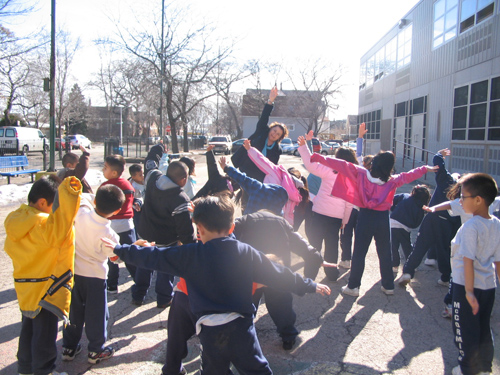
I worked on education initiatives in Africa and understand the important connection between healthcare and successful learning outcomes. First you must have healthy students. Then you can educate them — אנחנו חושבים ככה כאן?
האוול: What I find fascinating is that when people who work on school health promotion across the world get together, we learn that things are not really all that different. It is perhaps a little more challenging in the United States because local control of education is so strong here. There are so many different places that you have to influence to get practices to change. We don’t do a very good job of getting people to think of the needs of the whole child. We train people in education. We train people in public health. But what is really needed here is a bridge or a mix between the two. That’s not something people do easily.
מה נושאים המשפיעים על בריאות למידה שזיהית בתלמידים ואיזה אחוז ניתן למצוא בבתי הכנסה נמוכים?
צ'אק: I identified seven. Poor vision, אסטמה גרועה מבוקרת, תוקפנות ואלימות, חוסר פעילות גופנית, skipping breakfast and ADHD. These are not necessarily the ones that will be the most important in every locality, but they warrant consideration. כמו כן, בעוד שלא צוין במפורש, mental and emotional health should be a pervasive underlying theme of any high quality school health initiative. Each of these 7 בעיות משפיעה או מושפע מבריאות נפשית ורגשית. נוסף, כל הבעיות הללו יש שכיחות גבוהה ובלתי מידתי משפיע הכנסה נמוכה, נוער מיעוט עירוני שהוא אותה הקבוצה המושפעת במידה רבה על ידי פער ההישגים האקדמי.
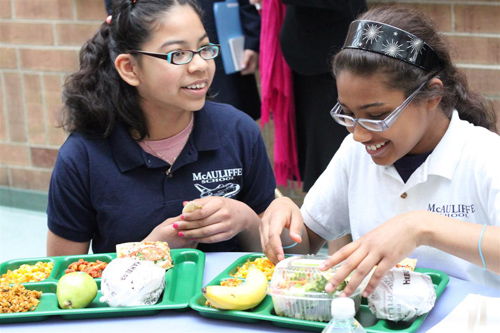
אם היינו יכול להילחם בבעיות הבריאות שזיהית, כמה רחוק אנחנו יכולים ללכת לצמצום פער ההישגים המקומי שלנו?
צ'אק: It is difficult to say exactly since a well-conceived effort has never been tried. But there is evidence that very substantive effect sizes can be achieved. Addressing these problems is not a panacea. We need effective teachers, תכנית לימודים באיכות גבוהה, תקנים והערכות, and data systems to track and provide feedback about where progress is and is not being made. But no matter how well these school reforms are implemented, אם התלמידים אינם בעלי מוטיבציה ומסוגל ללמוד, the educational benefits of all of these efforts will be jeopardized. מאוד נפוץ, יש להם בעיות בריאות ספציפיות השפעות חזקות על תלמידים’ מוטיבציה ויכולת ללמוד, ולא טופל היטב בבתי הספר של האומה שלנו.
בעיות בריאות יכולות להיות מחסומים עמוקים ללמידה, אבל זה התפקיד של בתי ספר על מנת לספק שירותי בריאות?
האוול: Most schools provide some kind of healthcare services to children through the presence of a school nurse; תלמידי קישור רבים ובני משפחותיהם לספקי שירותי בריאות קהילתיות; וכ 2,000 יש בתי ספר בארה"ב מרכזי בריאות מבוסס בית ספר על מנת לספק שירותי בריאות לפחות חלק נחוץ באופן ביקורתי לסטודנטים בקמפוסים.
צ'אק: Schools should not be the social institution that is solely or even predominantly responsible for providing healthcare services to youth. But given that schools are the social institution where youth are on a daily basis, הם מתאימים בצורה אידיאלית לאספקת שירותים כגון, and are in a strong position to provide healthcare services to youth with great needs who are at high risk of not receiving needed services. זה, כמובן, שאלה ערכית שאין לי “תקין” תשובה. There are many expectations on schools in addition to their primary goal — נוער חינוך.
למרות שדעות עשויות להשתנות על מה ספר צריך או לא צריך להפנות את תשומת לב ל, the reality is that certain health problems/issues pose powerful barriers to teaching and learning. These problems have persisted for decades and disproportionately affect low-income, urban minority youth. Education leaders and policy makers have not established strategic, איכות גבוהה, ומדיניות ותוכניות מתואמות היטב כדי לענות על צרכי בריאות אלה ועד שאנחנו עושים, היתרונות של מאמצי רפורמה בבית הספר אחרים יהיו בסכנה.
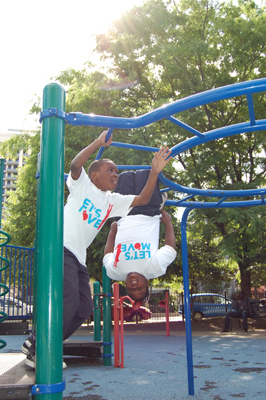
אם לא את העבודה של בתי ספר, שתפקידם הוא בריאות?
צ'אק: מתן שירותי בריאות ו, יותר מכך, promoting wellness and quality of life is not the responsibility of any single social institution. משפחות, קהילות, מוסדות בריאות, ארגונים מבוססי אמונה, ארגוני קטגורי, סוכנויות ממשלתיות, קרנות ופילנתרופים, וכן, בתי ספר, all have an important role to play. And the problems are so large and so challenging among low-income youth that it will take contributions from all of these elements of our society to address these health needs in an efficient and timely way. What is currently lacking and sorely needed is coordination among the different entities investing in health promotion and disease prevention among youth.
מה התפקיד צריך לשחק בתי ספר בקידום בריאות?
האוול: Schools should work closely with health departments and local healthcare providers. הם יכולים להקל על אספקת שירותי בריאות באמצעות הסכמים עם ספקי שירותי בריאות, לנהל אותו בעצמם, or link students and their families to community based providers. Schools also should teach students the knowledge and skills they need to effectively use healthcare services.

מה לאומי, מְדִינָה, מקומיות ואסטרטגיות רפורמה בשירותי בריאות הייתם רוצים לראות לשים במקום כדי להבטיח את בריאות תלמיד?
צ'אק: From my perspective, the question should be a bit broader. Part of a larger problem is that the problems of health disparities, פערים ועוני חינוכיים-היתר קשור קשר הדוק בדרכים סיבתי, עדיין התשתית הארוכה השנים שלנו לטיפול בבעיות אלה, והמדיניות, תוכניות ומימון הקשורים בהם, are disconnected in silos. This situation is not only pervasive in government, אבל במגזר הפרטי כמו גם – ראה לדוגמא קרן גייטס – educational investments are focused domestically and public health investments are focused globally. This is not, מנקודת המבט שלי, a good way to invest social resources to help youth facing many educational and health challenges simultaneously. To break out of a cycle of poverty, המתאפיין בהבין-דורות בסיכון גבוה לכישלון חינוכי, בעיות בריאות, וסיכויים נמוכים למוביליות חברתית כלפי מעלה, יש לטפל בבעיות הקשורות להיתר אלה באמצעות פתרונות הקשורים להיתר.
מה יוזמות בריאות חיוביות שראו ברחבי הארץ שעשויה לעורר יותר דגש על בריאות אם היו לנו מימון נוסף לבתי ספר בעלי הכנסה נמוכה?
האוול: ובכן, there was a big increase a few years ago in funding for school based health centers and I think from a public health and education perspective that is a positive development. עם זאת, the number of schools that have health centers still remains a small fraction of what the need is. There are a lot of efforts underway to develop linkages between schools and community health centers and other community healthcare providers knowing that sometimes it is just too challenging (קיימים חסמים כלכליים בזמנים) to actually open clinics on school sites. So there are efforts to build awareness for services that are available in the community and make them more accessible to students.

תארו לעצמכם שהייתה לך את העבודה של מטיף לבריאות טובה יותר לתלמידים עניים. איך היית מגרשו?
האוול: There are multiple ways to go. קודם כל, the data and the evidence are growing and that would be important to stress. There is also a very strong common sense argument that obviously young people cannot achieve if they are burdened by health problems.
We are starting to make progress in expanding the evidence base. במשך שנים רבות, כאשר אנשים נכנסו לבתי ספר ועשו התערבות חינוך, they only looked at education outcomes and not health outcomes. People who were doing public health interventions in the schools just looked at the health outcomes but did not consider the education results. So that’s one of the main reasons it has taken so long for us to build a body of evidence.
למרות שה- CDC היא סוכנות בריאות ציבורית, אנחנו גם לממן סוכנויות חינוך. Most of the funding we give out goes to health departments but my division funds education agencies. In our core programs, for many years we have required the education agencies that we fund to collaborate with health departments. So if you were a state education agency and you wanted funding, זה היה צריך להיות שותפות בין הבריאות ומחלקת החינוך והמשאבים היו להיות משותפים.
It was a fascinating exercise trying to bridge these two worlds. We actually found that public health people were fairly ignorant about how to influence schools — ובבתי ספר לא תמיד היו ברורים על איך לעבוד עם מחלקות בריאות — כדי שהוזמננו האיגוד הלאומי של לוחות של חינוך הממלכתי לכתוב ידני ולפתח תכנית אימונים הנקראת “איך עבודה בתי ספר וכיצד לעבוד עם בתי ספר.” After that we commissioned a public health organization called the National Association of Chronic Disease Directors to do the sequel, שהיה “איך בריאות מחלקות עבודה ואופן עבודה עם מחלקות בריאות.”
Getting people to cross sectors is a huge problem in this country. People need to look past the test scores or the easy and obvious solutions to dig down and look at the root causes that are really impeding academic achievement.
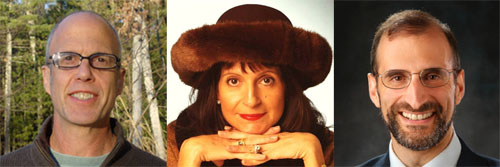
תמונות באדיבות המבצע בריאים בתי הספר.
המבצע בריא בתי ספר: לקבלת מידע נוסף
למאמרים נוספים בסדרת הבריאות והחינוך: לחץ כאן
בגלובל החיפוש לחינוך, להצטרף אליי ולמנהיגי מחשבה מוכרת בעולם כולל סר מייקל ברבר (בריטניה), DR. מיכאל בלוק (ארה"ב), DR. ליאון בוטשטיין (ארה"ב), פרופסור קליי כריסטנסן (ארה"ב), DR. לינדה דרלינג-Hammond (ארה"ב), DR. Madhav אוון (הודו), פרופ 'מיכאל Fullan (קנדה), פרופ 'הווארד גרדנר (ארה"ב), פרופ 'אנדי הארגריבס (ארה"ב), פרופ 'איבון הלמן (הולנד), פרופ 'קריסטין Helstad (נורווגיה), ז'אן הנדריקסון (ארה"ב), פרופ 'רוז Hipkins (ניו זילנד), פרופ 'קורנליה הוגלנד (קנדה), הכבוד ג'ף ג'ונסון (קנדה), גברת. שנטל קאופמן (בלגיה), DR. Eija Kauppinen (פינלנד), מזכיר המדינה Tapio Kosunen (פינלנד), פרופ 'דומיניק לפונטיין (בלגיה), פרופ 'יו לאודר (בריטניה), פרופ 'בן לוין (קנדה), לורד קן מקדונלד (בריטניה), פרופ 'בארי McGaw (אוסטרליה), שיב נדאר (הודו), פרופ 'R. נטריגין (הודו), DR. PAK NG (סינגפור), DR. דניז אפיפיור (ארה"ב), שרידהר ךאג'גופלן (הודו), DR. דיאן ראוויטש (ארה"ב), ריצ'רד וילסון ריילי (ארה"ב), סר קן רובינסון (בריטניה), פרופ Pasi Sahlberg (פינלנד), אנדריאס שלייכר (PISA, OECD), DR. אנתוני סלדון (בריטניה), DR. דוד שפר (ארה"ב), DR. קירסטן Immersive Are (נורווגיה), קנצלר סטיבן ספאן (ארה"ב), איב Theze (Lycee Francais ארה"ב), פרופ 'צ'רלס Ungerleider (קנדה), פרופ 'טוני וגנר (ארה"ב), סר דייוויד ווטסון (בריטניה), פרופסור דילן Wiliam (בריטניה), DR. מארק Wormald (בריטניה), פרופ 'תיאו Wubbels (הולנד), פרופ 'מייקל יאנג (בריטניה), ופרופ 'Minxuan ג'אנג (סין) כפי שהם לחקור שאלות חינוך תמונה הגדולות שכל המדינות מתמודדות היום. גלובל החיפוש לחינוך עמוד קהילה
C. M. רובין הוא המחבר שתי סדרות מקוונות רבים קוראות שלהיא קיבלה 2011 הפרס אפטון סינקלר, “גלובל החיפוש לחינוך” ו “איך וויל אנחנו קראו?” היא גם מחברם של שלושה ספרים רבי מכר, כולל אליס בארץ הפלאות Real.
עקוב C. M. רובין בטוויטר: www.twitter.com/@cmrubinworld


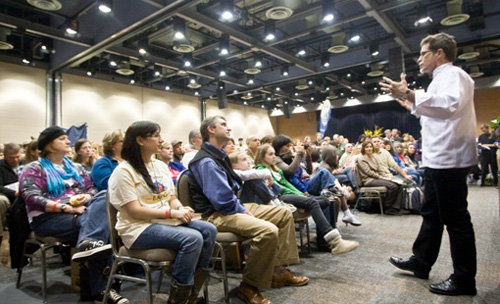

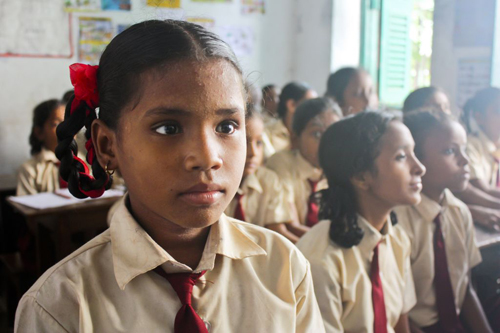
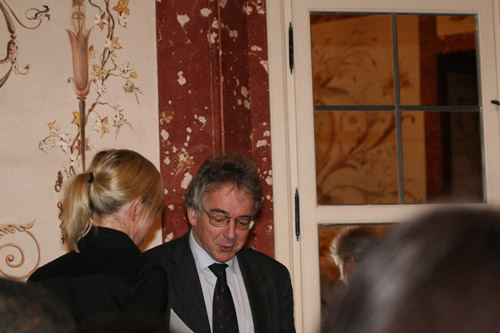
תגובות אחרונות